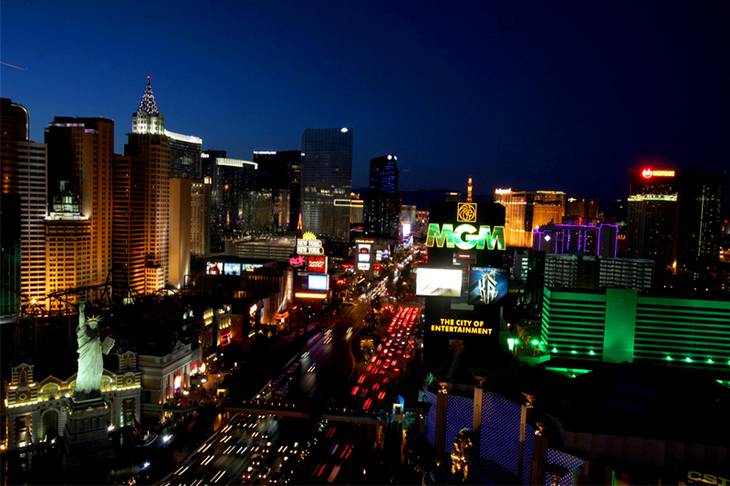VEGAS INC
As repositories of the personal information and financial records of hundreds of thousands of guests enrolled in loyalty programs, Las Vegas resorts are an obvious target for terrorists seeking to finance their destructive plots, a security expert told a tourism safety conference Wednesday.
David Shepherd, CEO and chief preparedness officer of Las Vegas-based Readiness Resource Group, urged more than 200 security officers attending the International Tourism Safety Conference at the Golden Nugget to develop plans for financial terrorism and cyberterrorism if they haven’t already.
Shepherd outlined how terrorists finance their plots in a presentation at the locally produced event that examined how to protect companies from thieves and terrorists and to prepare for natural disasters.
The three-day conference concluded Wednesday at the Golden Nugget and was sponsored by the Southern Nevada Tourist Safety Association, the Las Vegas Security Chiefs Association, the Las Vegas Convention and Visitors Authority and Metropolitan Police.
Shepherd, the former head of security at the Venetian, said he helped coordinate 200 working groups at the resort and that the key to preserving life and limiting damage in an attack is for every worker to step up their customer service skills with communication.
Another key responsibility, he said, is to prevent properties from being a part of the terrorism financing chain.
“It takes money to finance something as big as 9/11,” Shepherd said. “And raising money is all part of the planning process.”
Although many of the 48 international terrorist groups identified by the State Department and operating in the United States collect donations as charities, most build their cash reserves in nefarious ways, he added.
Some are involved in money laundering, extortion and kidnapping. Others are in drug running, human trafficking and the sale of counterfeit merchandise.
Shepherd said the trafficking of human beings for sexual exploitation and slavery has grown into a $42.5 billion industry worldwide in 127 countries. It’s the second largest illegal industry after drugs.
The sale of counterfeit merchandise — apparel, luxury goods, pharmaceuticals, food, software, bootlegged movies and auto parts — costs U.S. companies $200 billion a year and an estimated 750,000 jobs, he said.
It’s estimated that 5 percent to 7 percent of world trade is in knockoff products. But the theft of financial information from resort computer systems is worrisome in Las Vegas because companies often have bank records, Social Security and credit card numbers. Shepherd said when he was at the Venetian, the property encountered 860,000 attempts to hack into the computer system in a month.
He suggested reviewing encryption systems to secure data transfers. The theft of personal information will get worse, he said, with the increase in popularity of mobile devices and smartphones.
Shepherd recommended seeking out expertise to keep information from falling into the wrong hands. The FBI operates the Terrorism Financial Review Group that works with the law enforcement, regulatory and intelligence communities, and Shepherd said asking for help from authorities can help companies protect themselves.
“The most important thing you can do is ask the questions,” Shepherd said. “The two most important words are ‘what if.’ You don’t want to be asking ‘what if’ after the fact.”
